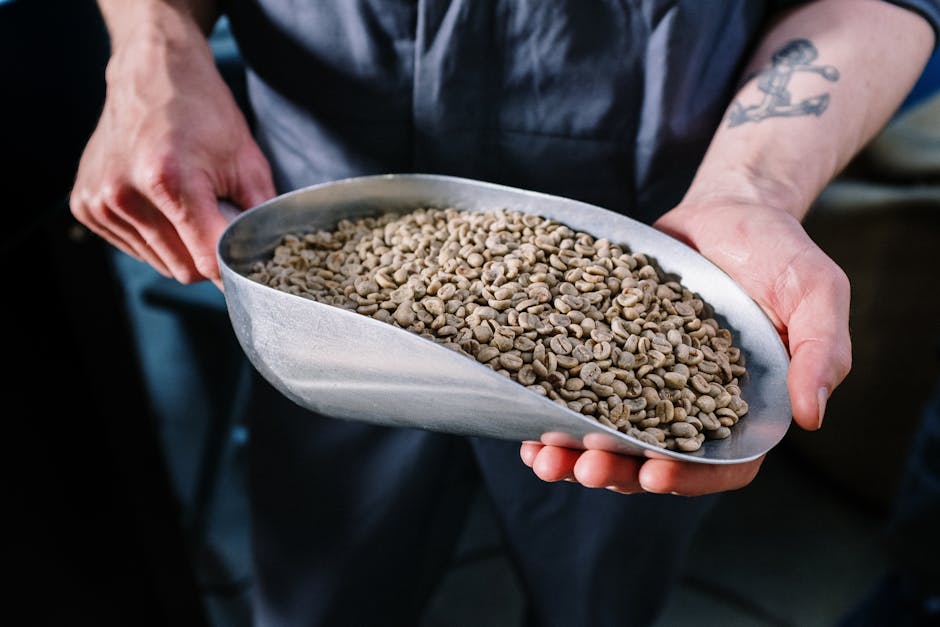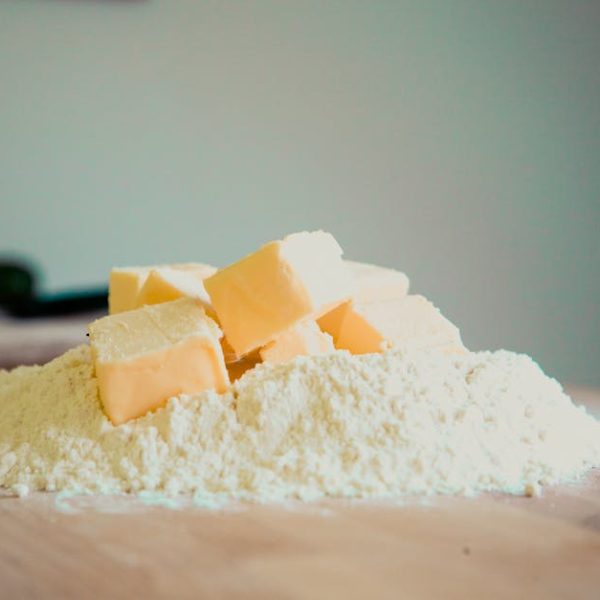If you’re a coffee aficionado, you probably already know that the freshness of your beans can significantly impact the taste of your brew. But what if you’ve bought coffee beans in bulk, or simply can’t consume them quickly enough before they go stale? This is where freezing coffee beans comes into play. Freezing coffee beans effectively allows you to extend their shelf life, preserve their freshness and quality, and enjoy a flavorsome cup of coffee at any time. However, this must be done correctly to prevent any damage to the beans and unrecoverable loss of flavor. In this article, we’ll delve into five essential tips for freezing coffee beans correctly for optimum results.
Understanding the Concept and Necessity of Freezing Coffee Beans
Freezing coffee beans is a practice that involves storing the beans in a freezer to maintain their freshness. The idea behind this practice is based on slowing down the chemical reactions – including oxidation – that cause the beans to go stale. While many coffee connoisseurs swear by this routine, it’s worth noting that not everyone in the coffee world is sold on the idea. Some purists believe freezing can somehow interfere with the beans’ flavor profile. However, if done right, freezing coffee beans should preserve their quality without altering their flavor.
The primary benefit of freezing coffee beans is longevity. Coffee beans are susceptible to air, moisture, heat, and light – all contributors to the beans losing their flavor over time. Freezing mitigates these effects, allowing you to keep your beans fresh for several months. This method is especially handy if you often buy in bulk or infrequently consume your coffee beans.
Choosing the Right Coffee Beans for Freezing
The quality and freshness of your coffee beans play a significant role in the outcome of the freezing process. As such, not all coffee beans are suitable for freezing. First, you should avoid freezing overly oily beans, as the oil can become rancid in the freezer, resulting in a sour taste. Instead, opt for medium-roast beans which are less oily. Moreover, it’s critical to choose freshly-roasted beans. Freezing delays the staling process, but it doesn’t ‘restart’ it. If you freeze stale beans, you’ll still get stale coffee afterward.
When it comes to the type of coffee bean, it’s really a matter of personal preference. While Arabica beans are generally higher quality and have a more delicate flavor, Robusta beans are more robust and freeze well. Nevertheless, both types can be frozen without significant changes to their taste – as long as the other conditions are right.
Preparation of Coffee Beans for Freezing
Before freezing your coffee beans, you need to properly prepare them to avoid any potential pitfalls. Begin by ensuring that your beans are clean and completely dry. Any moisture on the beans can cause freezer burn – dry air inside the freezer extracts moisture from the beans, leading to a stale taste. Moreover, ensure that your beans are free from any contaminants that could affect the flavor during freezing.
Here’s a simple checklist for preparing your coffee beans for freezing:
- Pick through the beans to remove any stones or foreign objects.
- Ensure the beans are completely dry
- Keep the beans in their whole, unground state. Grinding the beans before freezing will expedite the staling process.
- Pack your beans into a suitable container for freezing.
Here’s a pro tip: Avoid using containers that can absorb the flavors and odors from the freezer, like certain types of plastic. Instead, go for airtight, non-reactive containers – they might cost a bit more, but they’ll preserve your beans’ flavor significantly better.
Storing Process – A Key for Freezing Coffee Beans
Storing coffee beans correctly once in the freezer is an essential factor that should not be overlooked in the freezing process. Even in the freezing temperatures, air, moisture, and unwanted flavors can still find their way into the beans if not packaged correctly, leading to poor flavor and quality.
Containers used for storage play a crucial role in preserving the coffee beans’ quality. Glass jars, BPA-free plastic containers, and vacuum-sealed bags are generally good options, but avoid any container that doesn’t seal properly. You may also use the original packaging if it’s resealable and airtight.
A comparison between vacuum-sealed bags, airtight containers, and original packaging can shed more light on what’s suitable for you:
| Containers | Pros | Cons |
|---|---|---|
| Vacuum-sealed Bags | Highly effective in keeping out air and moisture. | Can be costly, not always readily available. |
| Airtight Containers | Easily reusable and efficient in preserving flavor. | May take up more space in the freezer. |
| Original Packaging | Convenient and no additional purchase required | Not all packages are airtight or best suited for freezing. |
Thawing and Using Frozen Coffee Beans
Once properly frozen, thawing and using your coffee beans also require specific practices to ensure the original flavor is maintained. When you’re ready to use the frozen beans, it’s essential to let them thaw and come to room temperature before grinding and brewing. This helps avoid condensation, which can lead to a rapid loss of flavor.
Use these best practices when thawing and using your frozen coffee beans:
- Avoid refreezing beans once they’ve thawed. This will damage the flavor, significantly impacting the quality.
- Use the thawed beans within two weeks—for the optimal flavor, the sooner, the better.
Here’s an important tip: though you should let the beans reach room temperature before grinding, grind them when they’re still cold. This allows the beans to break up into a more consistent grind, giving you a more flavorful cup of coffee. By applying these tips, you’ll be sipping a delightful, fresh coffee cup regardless of how long you’ve stored the beans.
Freezing coffee beans is a practical way to extend their shelf life while preserving their taste. With these tips, you’re now prepared to freeze, store, thaw, and grind your coffee beans correctly. Enjoy the sweet aroma and tantalizing flavor of a fresh cup of coffee any time you need it!
Key Takeaway:
- Freezing coffee beans enables you to preserve their freshness and extend their shelf-life. The practice works by slowing down chemical reactions like oxidation, which cause the beans to go stale.
- The quality and freshness of the beans, as well as the type you choose (Arabica or Robusta), significantly affect the outcome of the freezing process. Freshly-roasted, medium-oil beans are recommended.
- Proper preparation is essential to prevent pitfalls like freezer burn. This involves picking, cleaning, drying, and packing the beans for freezing.
- The choice of container for freezing plays a critical role in preserving the beans’ quality. Suitable options include glass jars, BPA-free plastic containers, vacuum-sealed bags, or even the original packaging if it’s airtight.
- Thawing and using the beans correctly also contribute to maintaining the original flavor. It’s crucial to allow beans to reach room temperature before grinding or brewing, though grinding cold beans can yield a more flavorful cup of coffee.
Remember, coffee is all about enjoying intense flavors and stimulating aromas. Don’t let excess coffee beans go to waste by turning stale. Freezing is an excellent preservation method, as long as it’s done correctly. So, embrace these tips, and enjoy a delightful, fresh cup of coffee anytime you want.
FAQs
Q: Can all types of coffee beans be frozen?
A: Absolutely, both Arabica and Robusta beans can be frozen successfully, without any significant changes to their taste.
Q: How long does the freshness of coffee beans last in the freezer?
A: With the correct preparation, storage, and thawing methods, the freshness of coffee beans could last for several months in the freezer.
Q: What’s the harm in grinding coffee beans before freezing them?
A: Grinding beans before freezing will expedite the staling process. It’s best to freeze them in their whole, unground state.
Q: Is it possible to freeze coffee beans in the bag they came in?
A: Yes, as long as the original packaging is resealable, airtight and ideally protects the beans from light exposure.
Q: Can I refreeze coffee beans that I’ve thawed out?
A: Avoid refreezing beans once you’ve thawed them as this will damage their flavor.
We encourage you to share this article with your fellow coffee enthusiasts and explore more informative posts on our website.






